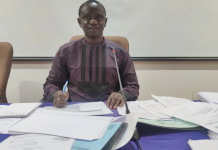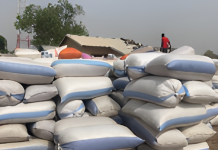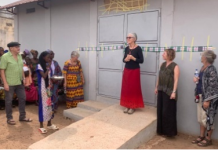A call to action
ByJosé Graziano da Silva
The COP 21 climate conference, to be held in Paris in the aftermath of the recent barbarian acts of terrorism, is a fresh  opportunity for the international community to come together and show its commitment to the 2030 Agenda and its Sustainable Development Goals (SDGs), as the most appropriate way to promote a fairer, safer and more inclusive world, where no one is left behind.
opportunity for the international community to come together and show its commitment to the 2030 Agenda and its Sustainable Development Goals (SDGs), as the most appropriate way to promote a fairer, safer and more inclusive world, where no one is left behind.
There will be no peace without sustainable development. And there will never be sustainable development while people continue to feel excluded, and while people continue suffering from extreme poverty and hunger.
A solution for a better world must involve everyone. That is what the 2030 Agenda is about: universality, solidarity and inclusiveness. The 17 Sustainable Development Goals are intertwined. Climate change is probably the issue that best represents this connectivity between them.
SDG 13 is specific to climate change. It determines that countries should take urgent action to combat climate change and its impacts. Failure to do so would put at risk the achievement of all the other SDGs, in particular the fight against hunger.
Ridding the world of hunger cannot be separated from the need to curb the harmful effects of climate change on food security and nutrition. Countries gathering for the COP 21 negotiations must bear this in mind.
Once only a dream, a world free of hunger is now within our reach. We produce enough food, we possess the technology, and we know what policies and actions work best.Yet climate change, including more frequent extreme weather events, represents a barrier that stands in the way of realizing this goal.
Global warming affects food production – staple crop yields are decreasing, and by 2050, drops of 10-25 percent and above are likely to be widespread. Meanwhile, droughts, floods, sea level-rise and hurricanes increasingly threaten the lives and livelihoods of the most vulnerable. Such climate-related disasters contribute heavily to economic losses and population displacement. At the same time, the world population continues to grow. And it is growing fastest in those countries most vulnerable to climate change.
Climate change is undermining the livelihoods and food security of the world’s poor, 80% of whom live in rural areas and depend on agriculture, forestry and fisheries. We need a global framework to support development and growth while conserving our planet’s natural resources, particularly in rural areas. The Sustainable Development Goals are a central part of this framework. To complement it, countries are coming together in Paris to negotiate a new, global climate agreement which hinges on limiting the increase in global temperature to below 2 degrees Celsius.
FAO’s overarching goal is to ensure that food security and adequate food security for all remains firmly at the centre of the climate change debate. Countries must be able to both implement solutions and scale up adaptation and mitigation actions. To this end, the Paris framework needs to support technology transfer, capacity development, and the mobilization of finance.
These efforts will benefit everyone. In particular we must strengthen the livelihoods of smallholder farmers, fishers and foresters who are most at risk of food insecurity and are being disproportionately affected by climate change, especially in small island developing states, landlocked countries, arid and semi-arid areas. For them, adaptation is synonymous with ensuring food security. Farmers, fishers and foresters – large or small-scale, in developed or developing countries – are more than food producers. They are custodians of the Earth, and as such, help steward our natural resources on behalf of us all. They are thus central to the solution and cannot be made to bear alone the burden and the cost of dealing with the effects of climate change.
FAO is committed to contribute its technical expertise and experience to support people, especially those in rural areas, break out of the cycles of hunger and poverty, in particular in the face of climate change.
Strong partnerships are the foundation for sharing knowledge and resources on development issues. Now is the time to forge them. Only through close co-operation can we ensure that the progress we have made on food security is not compromised by the impacts of climate change.
It is imperative that we get our priorities right and put food security first. We must recognize that the agricultural sectors, including livestock, forest and fisheries, – on which most of the world’s poor depend – and climate change are closely intertwined, and that solutions regarding one should also benefit the other.
Simply put: achieving food security and adequate nutrition for all for a growing population under a changing climate and with limited resources means that we have to learn to produce more with less. This is a call to action.




















